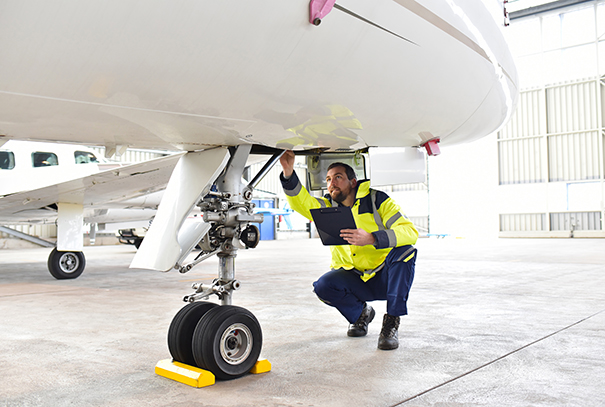
The adoption of Safety Management Standards and Recommended Practices by the International Civil Aviation Organisation (ICAO) in 20131, shows that entities across multiple domains in the aviation industry have implemented Safety Management Systems (SMSs).
To date, regulations requiring SMS implementation have focused primarily on certified air operators and aerodrome operators, as well as air navigation service providers. Current rulemaking activities are expected to promulgate SMS regulatory requirements for design, manufacturing, and maintenance organisations as well.
In anticipation of future regulatory requirements and recognising the benefits associated with safety management practices, many organisations are not yet required to implement SMS have done so proactively. To support SMS implementation by design, manufacturing, and maintenance organisations, a consortium of associations published an International Industry Standard (SM-0001) entitled “Implementing a Safety Management System in Design, Manufacturing and Maintenance Organisations.” This consortium includes:
- The Aerospace and Defence Industries Association of Europe (ASD),
- The Aerospace Industries Association of America (AIA),
- The Aerospace Industries Association of Brazil (AIAB),
- The Aerospace Industries Association of Canada (AIAC) and
- The General Aviation Manufacturers Association (GAMA)
Issue A of the Industry Standard2, published in 2018 supports SMS implementation consistent with the Standards and Recommended Practices contained in ICAO Annex 19 Edition – Safety Management3 and is intended to be aligned with associated regulations issued by national and regional authorities. The Standard has been recognised by the U.S. Federal Aviation Administration (FAA) as a means to demonstrate compliance with regulatory requirements contained in Title 14 Part 5 of the U.S. Code of Federal Regulations. In cases where such regulations have not yet been promulgated, the Industry Standard is equally useful in supporting voluntary SMS implementation.
The Standard provides detailed guidance to implement SMS, as well as guidelines for interface management, including the sharing of safety-related information between organisations implementing SMS obligations, as well as with relevant aviation authorities. The Standard addresses each of the four components and twelve elements of the ICAO SMS Framework and considers corporate structure and processes such as: accountability; safety policy; hazard identification and safety risks management principles; safety data collection and assessment; and safety awareness and training.
An SM-0001 update is currently under development, with an anticipated publication date of February 2022 for the first revision (Revision B). Working in collaboration with the European Union Aviation Safety Agency (EASA), the Federal Aviation Administration, Transport Canada, and other authorities, industry representatives are developing the updated Standard to be deemed as an acceptable means of compliance for future SMS regulations. Revision B will also include alignment with the soon to be issued EASA Part 21 amendment, which introduces SMS requirements for all organisations holding an EASA approval; additional implementation guidance based on lessons learned as well as an enhanced tool to assess the maturity of an organisation’s SMS.
A Revision C is expected to be published in the last quarter of 2022. This revision will include material that will ultimately align with new FAA rulemaking for part 21 SMS for organisations that hold a Type Certificate and Production Certificate. Additionally, this rulemaking will also introduce requirements for SMS to organisations holding parts, 91.147, 135 and 145 approvals.
In addition, the industry consortium is developing a white paper entitled “SMS Implementation Strategies,” to provide additional guidance for organisations having disparate attributes including, but not limited to their size and complexity, the types of products or services being provided, as well as external factors such as operating environments and regulatory requirements. This white paper, anticipated to be published with Issue B of the Industry Standard, identifies desired outcomes as well as implementation challenges and strategies for each element contained within the ICAO SMS Framework. The white paper is intended to stimulate discussion between industry and regulatory stakeholders that assures effective and sustainable SMS implementation across a diverse group of organisations.
For further information or to participate in the revision of the International Industry Standard (SM-0001), “Implementing a Safety Board System in Design, Manufacturing and Maintenance Organisations” contact Jonathan Archer or Gilles Fontaine.
1. COM.41.13.en.pdf (icao.int)
2. SMS Standard (aiac.ca)
3. Microsoft Word - Anx.19.2nd.Edition.alltext.en.docx (caainternational.com)
Conditions & Limitations
This note is not intended to give legal or financial advice, and, accordingly, it should not be relied upon for such. It should not be regarded as a comprehensive statement of the law and/or market practice in this area. In preparing this note we have relied on information sourced from third parties and we make no claims as to the completeness or accuracy of the information contained herein. It reflects our understanding as at 29 September 2022, but you will recognise that matters concerning COVID-19 are fast changing across the world. You should not act upon information in this bulletin nor determine not to act, without first seeking specific legal and/or specialist advice. Our advice to our clients is as an insurance broker and is provided subject to specific terms and conditions, the terms of which take precedence over any representations in this document. No third party to whom this is passed can rely on it. We and our officers, employees or agents shall not be responsible for any loss whatsoever arising from the recipient’s reliance upon any information we provide herein and exclude liability for the content to fullest extent permitted by law. Should you require advice about your specific insurance arrangements or specific claim circumstances, please get in touch with your usual contact at Gallagher Aerospace.



